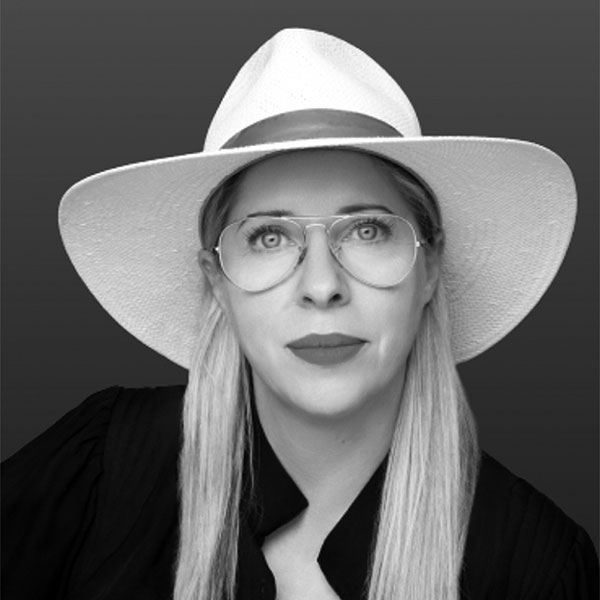Two things humans are great at: inventing new technologies and then worrying about the changes they’ll bring. Prompted to discuss the creation of writing, Socrates worried that it undermined our ability to remember and fully grapple with ideas. The same fears accompanied innovations such as the printing press, photography, cinema, and computers. Yet instead, these new technologies have enabled and enhanced the flow of information, supercharged learning, and allowed other forms of art and intelligence to flourish.
The newest worrisome advent is artificial intelligence. The arrival of AI applications such as ChatGPT have led many to worry about a future in which people will no longer know how to read, synthesize, and write information on their own. Others think that generative AI holds great promise for science, for business, for culture.
Which is it? Will these new technologies be good or bad for humans? And good or bad for the Jews?
I think the answer is yes.

Two Jews, three opinions, the saying goes. But I’m mostly optimistic. What these new technologies require us to do is ultimately to become more Socratic — to ask better questions. As we learn how to write great AI prompts, we’ll improve our own abilities to iterate, dig deeper, probe even further. We’ll partner with new technologies to advance our thinking, not to replace it.
As Jews, this concept — asking good questions — comes as second nature. What is our canon if not a series of difficult, complicated questions and the complex but vitally important rabbit holes that scholars have dived down over the ages? If ChatGPT leads us to ask more and better questions, all the better — for Jewish culture and for the world around us.
As a creator, I love having access to so much information. When I use AI-powered platforms to brainstorm ideas, artificial intelligence feels infinite, accessible, and buoyant all at once. Right now, I am working on a new film on the adolescent brain. I start by asking AI to summarize the existing research and then to refine its results, again and again. AI is a scope that lets me take in all the findings, then dial it all down to a micro level. I also love asking AI to look for larger trends in topics. Of course, I have to curate and synthesize the results myself, but AI provides a fun and useful way to volley ideas back and forth to stretch my own thinking.
While I worry about disinformation and the difficulty of distinguishing truth from falsehood in AI-generated content, I take heart from Neil Postman’s advice from 1999: “As Jefferson did, and much later John Dewey . . . the best way for citizens to protect their liberty is for them to be encouraged to be skeptical.” His first suggestion to aid in this was to “teach children something about the art and science of asking questions.”
These questions can be hard to generate when we spend so much time online. A healthy skepticism often has to come from a place of balance and repose, which is usually a place without pixels. For all the benefits of digital technology, clicking and tapping through screens doesn’t always encourage critical thinking and reflection. In order to gain from our devices, we need to be able to step away from them and into offline spaces where we can take a breath, collect our faculties, and put everything into perspective.
My family and I tap into this through a very Jewish technology: Shabbat.
We use this ancient Jewish invention in a way we call Tech Shabbat: no screens from Friday night to Saturday night. This respite, this break from the norm, provides presence, joy, humor, connection, and creativity. It brings a rhythm to my week that guides and sustains me. It makes me feel closer to my husband and my children — and my husband and I agree that it is one of the best parenting decisions we’ve made. The time offline, away from constant texts and notifications, gives our daughters space to think. Our screen-free day allows us to exist in a different and much-needed realm that offers the quiet and perspective we lose during the week. Freed from distractions, I have the bandwidth to ask bigger and better questions. Deprived of the ability to look things up online, I am reminded of the simple, lasting value of using the most complex organ we know of: the human brain.
After engaging in Tech Shabbat for 14 years, I’ve come to understand how my brain enjoys different modes of thinking and being. I love being offline — and I also love reentering the online world. Both are invaluable. I worry about those who never disconnect their brain from technology; I think they risk losing the perspective they need to ask the right questions. But I also worry about those who are shunning new technologies such as AI; they risk missing out on its truly astounding potential to access and advance human knowledge.
One of the best ways that I use Tech Shabbat to enable me to think differently is through journaling. I journal daily, but on Shabbat, without screens to interfere, I can do a three-hour review of the week by hand. I record what I am thinking about, what made me laugh, what I am struggling with, moments of beauty. It’s a highlight of my week. It’s also incredibly useful. All my best ideas come to me on Saturday. Turning off the outside and turning to the inside jump-starts creativity. As I explored in my book on Tech Shabbat, 24/6: Giving Up Screens One Day a Week to Get More Time, Creativity, and Connection, there are neuroscientific reasons for this. Activating my brain’s default mode lets me link things together in a new way. I can stretch out and ask myself questions. And in the quiet of the day, I can, for once, hear the answers.
What idea isn’t made stronger with a question?


